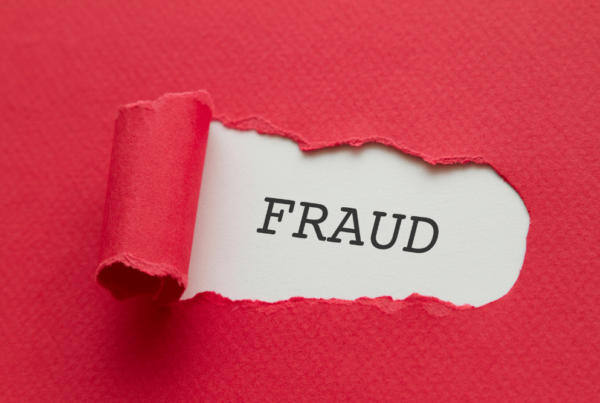NOTE: This entry reflects changes and updates to account for passage of the First Step Act (P.L. 115- 391) on December 21, 2018. With the First Step Act, the U.S. federal approach has adjusted to reflect modified corrections/reforms guidelines, positive incentives for good behavior, and safeguards against for recidivism.
A person who is self-employed would probably always prefer cash payment from customers over credit cards or personal checks. But the self-employed should be wary of federal laws concerning reporting cash payments. Intentional violation of cash reporting laws can result in felony charges. To ensure proper reporting, the federal government watches small business closely in a number of ways.
The Internal Revenue Service (IRS) monitors banking deposits in the United States. Pursuant to federal statute, financial institutions are required to report cash deposits in excess of $10,000 to the IRS.
Banks are required to make these reports pursuant to the Bank Secrecy Act of 1970. After amendment by the Patriot Act of 2001, U.S. federal law serves as an important tool for prosecutors in the investigation of drug trafficking, money laundering, and terrorism.
The law placing responsibility on banks to report cash deposits in excess of $10,000 is found at Title 31, United States Code, Section 5313. It provides that the Secretary of the Treasury can make rules for which deposits must be reported. See 31 USC 5313(a). Financial institutions must make Currency Transaction Reports (CTRs) for these deposits. The reports provide the IRS with the identity of the person making cash deposits and other pertinent data, which can be used by law enforcement.
While banks are required by statute to report deposits, individuals and businesses who receive payments in cash in excess of $10,000 are also required to make reports to the IRS, regardless of whether the money is deposited. This law is part of the tax code at 26 USC 6050I.
26 USC 6050I provides that any person in trade or business who receives a cash payment in excess of $10,000 must file a return with the IRS. The return is Form 8300, which discloses the identity of the parties and the nature of the transaction. It must be filed within 15 days of the date the payment is received. See 26 CFR 1.6050I-1(e)(1).
The law reads as follows:
(a) Cash receipts of more than $10,000
Any person—
(1) who is engaged in a trade or business, and
(2) who, in the course of such trade or business, receives more than $10,000 in cash in 1 transaction (or 2 or more related transactions),
shall make the return described in subsection (b) with respect to such transaction (or related transactions) at such time as the Secretary [i.e., the IRS] may by regulations prescribe.
See 26 USC 6050I.
Cash payments in excess of $10,000 must be reported. Cash is defined to include currency and coins. But under some circumstances, other forms of payment – such as cashier’s checks, bank drafts, traveler’s check, and money orders – may be considered cash and, thus, subject to reporting requirements. Personal checks are not considered cash.
The law applies to almost all businesses, including the legal profession. For example, a client seeking to keep his identity confidential should not use a cash payment in excess of $10,000 to retain counsel.
The U.S. Attorney has prosecuted lawyers for failure to file Form 8300. The lawyers argued that the law violates the attorney-client privilege by forcing disclosure of the client’s identity and the fact that he has retained counsel. The lawyers also argued Form 8300 violates the warrant requirement of the 4th Amendment (as an unreasonable search and seizure), the privilege against self-incrimination under the 5th Amendment, and the accused’s right to counsel of his choosing provided by the 6th Amendment to the U.S. Constitution.
Federal courts have rejected these arguments and permitted attorneys to be prosecuted for failure to file Form 8300. The identity of a client, existence of an attorney-client relationship, and fee structure are not confidential – when cash payments of more than $10,000 are made.
Failure to file Form 8300 for cash payments in excess of $10,000 does not result in charges under that section. Rather, a guilty person would be prosecuted under the tax code, 26 USC 7203.
26 USC 7203 is the section used to prosecute individuals who fail to file tax returns. It applies to both personal and corporate tax returns. Failure to file a tax return is normally a misdemeanor offense. The maximum punishment is one-year imprisonment and a fine.
However, failure to file Form 8300 is a felony offense with a special penalty. For this offense, the maximum is five-year sentence in federal prison. Specifically, the law says the following:
Any person required under this title to pay any estimated tax or tax, or required by this title or by regulations made under authority thereof to make a return, keep any records, or supply any information, who willfully fails to pay such estimated tax or tax, make such return, keep such records, or supply such information, at the time or times required by law or regulations, shall, in addition to other penalties provided by law, be guilty of a misdemeanor and, upon conviction thereof, shall be fined not more than $25,000 ($100,000 in the case of a corporation), or imprisoned not more than 1 year, or both, together with the costs of prosecution.
In the case of any person with respect to whom there is a failure to pay any estimated tax, this section shall not apply to such person with respect to such failure if there is no addition to tax under section 6654 or 6655 with respect to such failure.
In the case of a willful violation of any provision of section 6050I, the first sentence of this section shall be applied by substituting “felony” for “misdemeanor” and “5 years” for “1 year”.
See 26 USC 7203.
Where a person willfully fails to file Form 8300 for cash payments larger than $10,000, they can be prosecuted for a felony under federal law.
It is also illegal to structure payments in an attempt to avoid the Form 8300 rule, such as dividing the sum into parts. See 31 USC 5324. And if the total payments equal more than $100,000 over a 12-month period, the sentence is enhanced to 10 years in federal prison. See 31 USC 5324(d)(2).
The U.S. Attorney may also choose to charge a person who “cooks the books” in order to avoid reporting cash income under 26 USC 7206. This statute makes it a felony offense to withhold, falsify, or destroy financial tax records. The law says the following:
(B) Withholding, falsifying, and destroying records
Receives, withholds, destroys, mutilates, or falsifies any book, document, or record, or makes any false statement, relating to the estate or financial condition of the taxpayer or other person liable in respect of the tax;
shall be guilty of a felony and, upon conviction thereof, shall be fined not more than $100,000 ($500,000 in the case of a corporation), or imprisoned not more than 3 years, or both, together with the costs of prosecution.
See 26 USC 7206(B).
In other words, a person can be sentenced to five years in federal prison for maintaining separate and false accounting records for the same business. Though with the First Step Act, non-violent offenders – like those facing charges for failure to report cash payments – might be able to qualify for reduced sentencing below the usual federally mandated minimum levels of punishment.





